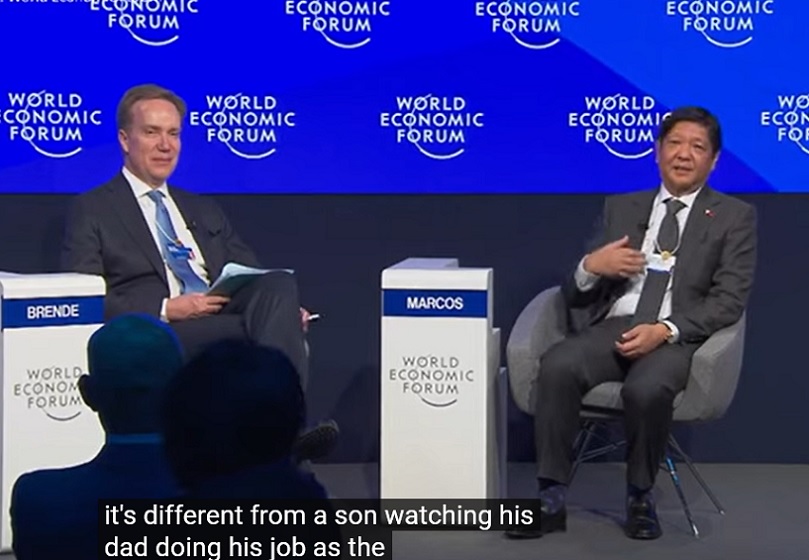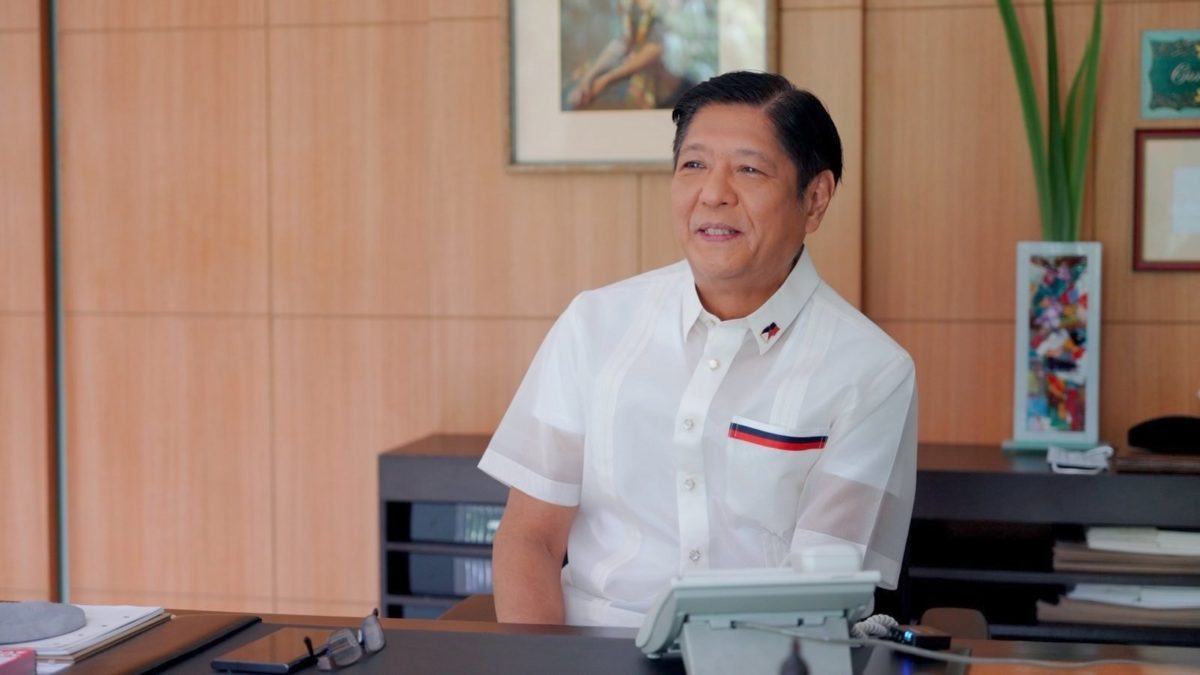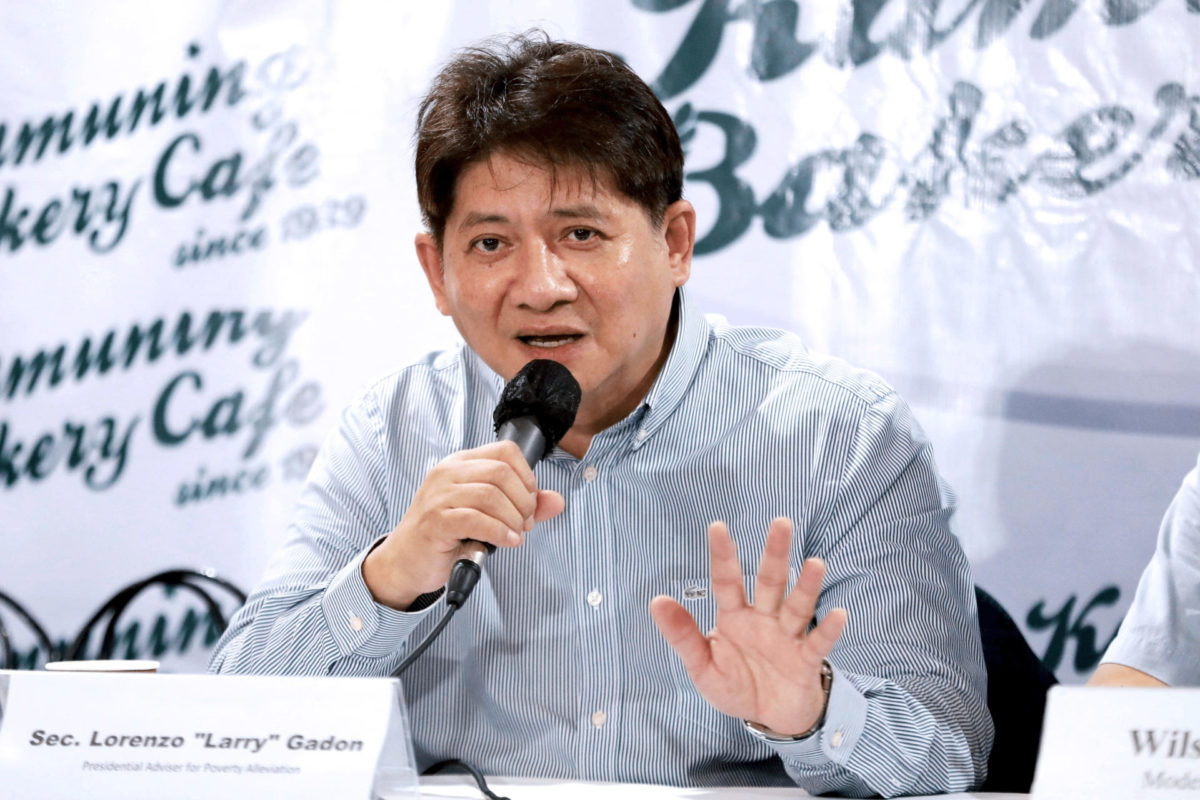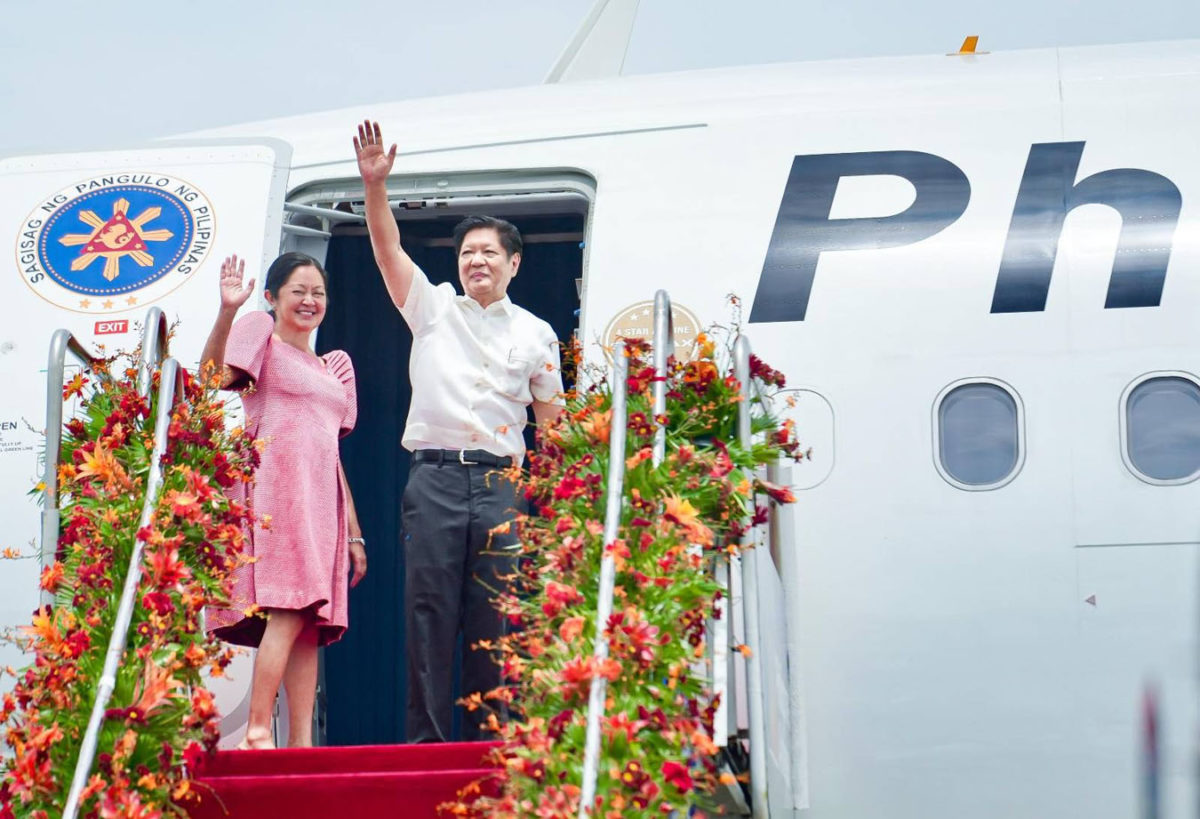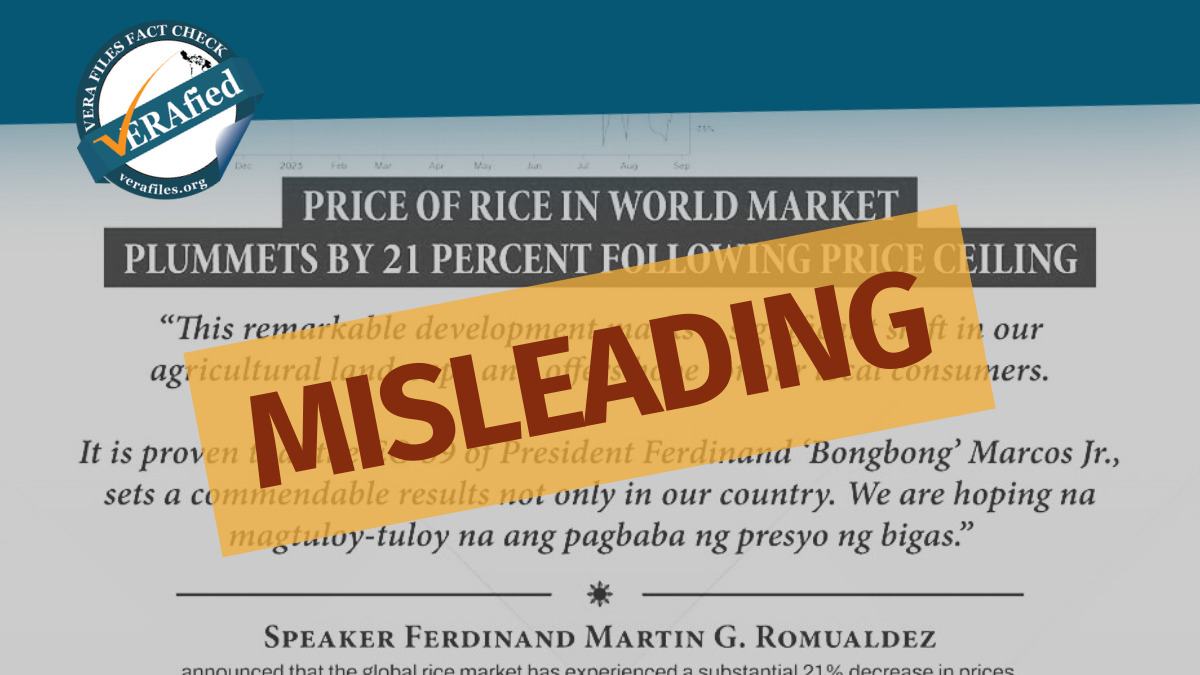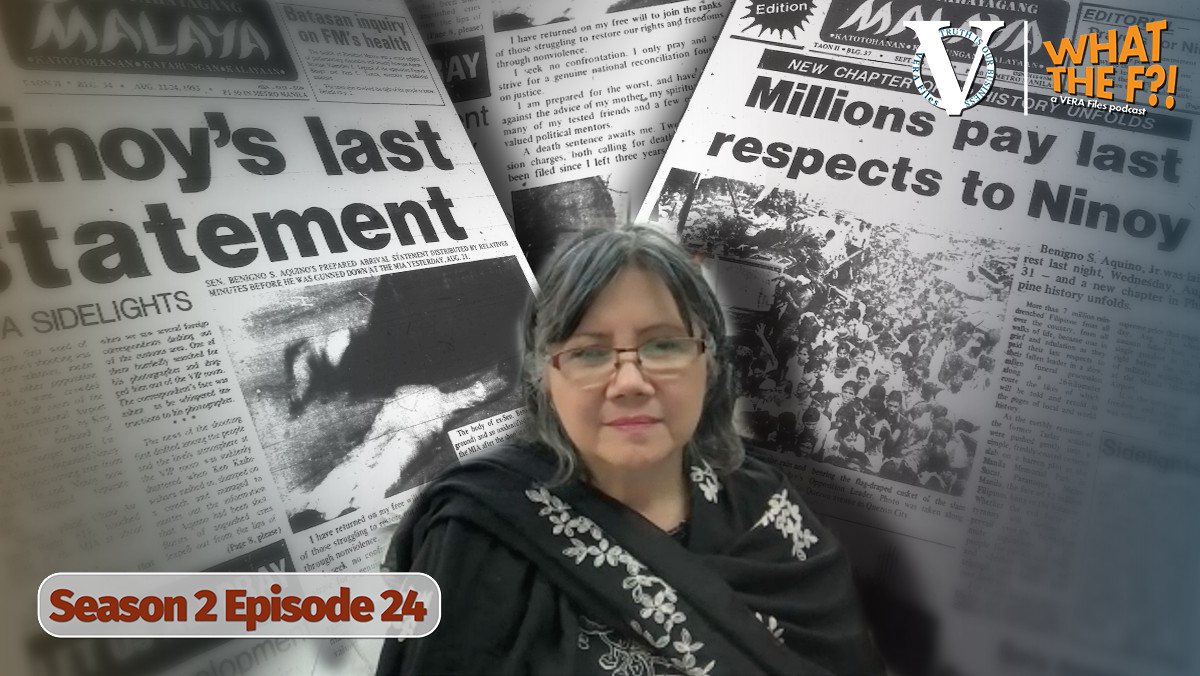The attendance of President Ferdinand Marcos Jr. in the 2023 World Economic Forum (WEF) from Jan. 16 to 20 in Davos, Switzerland was the ultimate redemption for him and his family and a stinging rebuke to the Filipino people.
In answer to the question of WEF President Børge Brende on how has his seven-month presidency been, Marcos replied that it was “pretty much expected” because, he continued: “I have the advantage of having spent years watching my father being president so I had a very good idea of what entailed. Now, of course it’s different from a son watching his dad doing his job than you yourself doing that job. It’s like I’m in the same setting but playing a different role but ,at least, I know what needs to be done. I have a fair idea how it used to be done anyway and so I have models that I can follow, templates that I can follow.”
He was also asked if becoming president was part of the plan when the Marcos family was preparing for their return to the Philippines after they were driven out of power in what is dubbed as a “people power” revolution in February 1986.
Marcos said that when he was still in school, he didn’t want to go into politics. But after the family was allowed to come back in 1991 (Marcos Sr. died in Hawaii on Sept. 28, 1989), they realized that they can best defend themselves by going into politics. “Somebody had to enter politics and to be in the political arena so that at least not only (for) the legacy of my father but even our own survival required that somebody go into politics.”
He described the six years living in exile asa “very trying time.”
“Those were dark days for the family, and I dare say, even for the country,” he said.
Brende lapping up the Marcos narrative is appalling to Filipinos who have not forgotten the discovery of secret accounts holding some $800 million stashed in six Swiss banks from among the documents they left behind in Malacañang.
In a show of support to the Filipino people, the Swiss government did something unprecedented – froze the accounts identified by the Philippine government under then president Cory Aquino as belonging to Marcos and members of his family following attempts to withdraw traced to them while in exile in Hawaii. In justifying the “freeze,” the Swiss bankers association said that “banking secrecy is not absolute and does not protect criminals.”
The accounts frozen were only those identified by the Philippine government. It is believed that there were many more accounts that the Marcoses continued to have access to up to this day.
The Presidential Commission on Good Government, created in 1986 to recover the wealth stolen by the Marcoses from the Filipino people, has placed the amount to over P25 billion.
That’s why we are turned off by the snow job that happened in Davos last week even as we acknowledge the hard work that the president did to attract investments to the country.
But no matter how sophisticated, how extensive the propaganda machinery is, truth will find its way to surface.
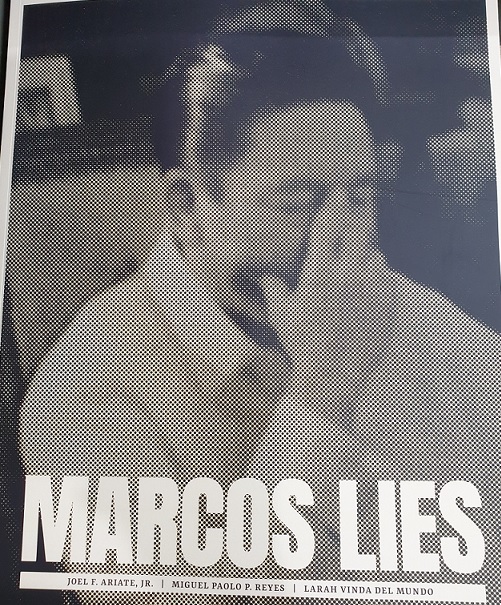
“Marcos Lies,” a compilation of 31 essays by researchers from the University of the Philippines Third World Studies – Joel F. Ariate Jr., Miguel Paolo P. Reyes and Larah Vinda Del Mundo – discusses in detail the various lies that the Marcoses have parlayed to the public in pursuit of power and plunder. One of the stories (Ferdie and Meldy’s House of Love, Lies, and Loot) talked about the “other Mrs. Marcos” in what was supposed to be the ideal marriage of Ferdi and Imelda Marcos. There was also about the “Who is Your Hero” survey that angered Imelda Marcos.
Marcos was a master of secrecy. There’s an article on how Marcos was able to keep the declaration of Martial Law a secret, as well as the tricks he had to resort to in order to hide his illness.
The articles in the 1.2 kilogram-tome are supported by documents – news reports and diplomatic cables, transcript of congressional investigations and other materials, various fragments of data that, when put together, offer a clear view of the truth that the Marcoses have either hidden or twisted. Some of those articles have been published in VERA Files.
The request for reservation for a copy of “Marcos Lies” is quite long, indicating the interest by many to bring to light what really happened during the dictatorship – the darkest period in the history Philippine democracy.
When Marcos won the election last May, one of the foremost questions in the minds of many was, “How will the Edsa people power revolution be observed under his presidency?”
His reply to Brende is a hint. Let’s see in three weeks.
The views in this column are those of the author and do not necessarily reflect the views of VERA Files.
